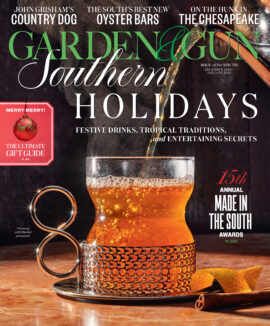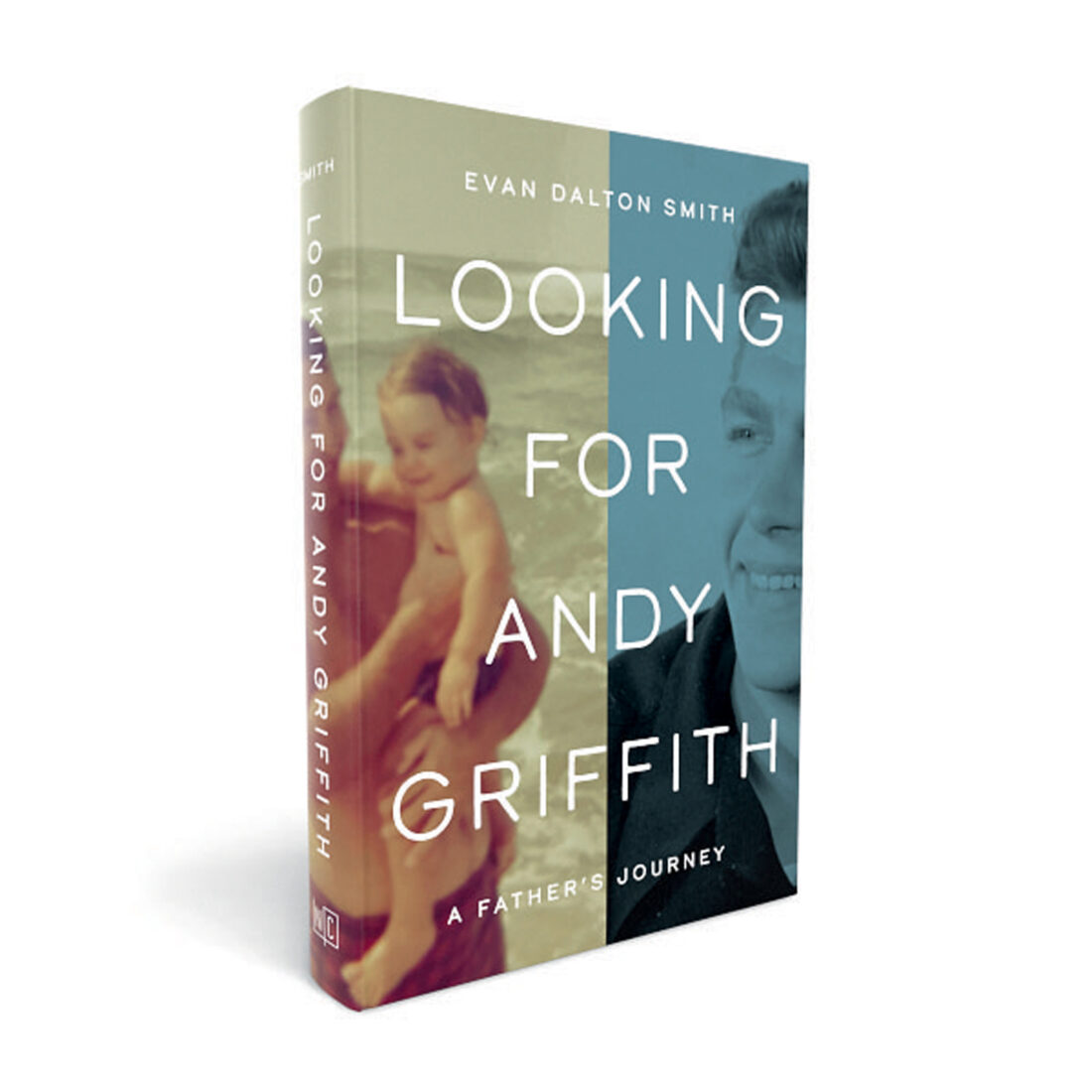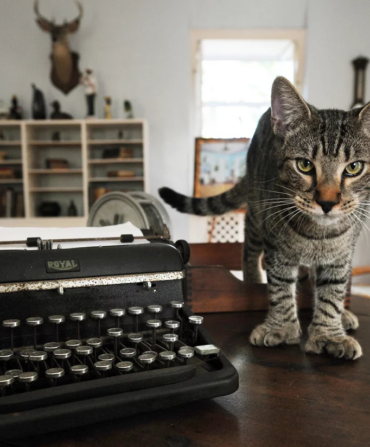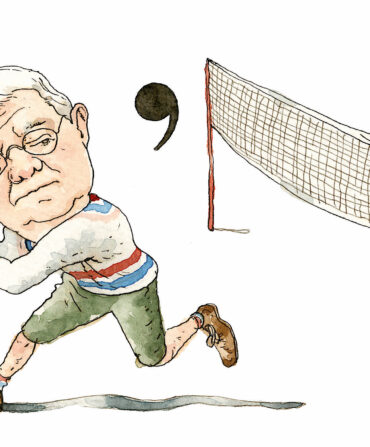Halfway through Looking for Andy Griffith: A Father’s Journey, Evan Dalton Smith’s deep, knotty dive into his adulation for the late actor and North Carolina icon, I found myself reminded, weirdly, of another book: Prague, Arthur Phillips’s 2002 novel about twentysomething expats in Budapest in the heady wake of the Berlin Wall’s collapse. Phillips’s nostalgia-plagued characters find real life to be somewhere out of reach, “trapped in the amber of some heirloom era,” as Phillips wrote about the book, or dwarfed by the “glories of the future and the fairytale splendor of the past.” They go about the novel plagued with suspicions that real life is happening in Prague—that’s the joke of the title—while they’re stuck in Budapest.

Prague came to mind because Looking for Andy Griffith isn’t really, at its heart, about Andy Griffith. Or even about looking for Andy Griffith. It’s an oblique meditation, rather, on what he represented to Smith and to others—but mostly to Smith—and what he may or may not have personified. Like Prague, it’s mostly about misplacement.
Let’s talk about Griffith, though, because complexities aside, Smith awards him star billing. Andy Griffith (1926–2012) cracked his first smile as Sheriff Andy Taylor of Mayberry in the fall of 1960, when The Andy Griffith Show premiered on CBS. The half-hour sitcom was a top ten hit for all of its eight seasons, and its syndicated reruns have been playing ever since. Griffith took on other roles, such as his later turn on Matlock, but it was his portrayal of Andy Taylor—wise, patient, empathetic, almost preternaturally decent—that endeared him to America.
And to Evan Dalton Smith. Smith, a distant cousin of Griffith’s, grew up in Asheboro, North Carolina, a town not unlike the fictional Mayberry on the surface, but with some notable contrasts deeper down. The dad next door, for instance, mercilessly beat his sons. The local coroner’s son hung himself. A state trooper’s son cruised neighborhoods preying on little boys. “Cable arrived in our neck of North Carolina in the 1980s, a few years after my father was killed,” Smith writes. “My older sister…matched our family’s blood types and discovered our newly dead father couldn’t have contributed to my DNA. Things in the house got even worse after that.” Including his mom’s pill addiction and mental health. But Smith had a coping mechanism. He’d tune the TV to Andy Griffith reruns, instantly transporting himself to a simpler, gentler, and well-fathered place, where every issue, no matter how dire, could be solved in thirty minutes. For “half-hour stints,” he writes, “I existed out of time—braver, lighter.”
He wasn’t alone. Produced during an era of unremitting assassinations, civil rights struggles, and the Vietnam War, The Andy Griffith Show proved a respite, as Smith notes, from “all the anxieties and grief of the modern age.” (It makes sense, then, that its viewership spiked again during the pandemic.) It was this aspect of the show and of Griffith’s character that Smith set out to explore when, a decade-plus ago, he began his Andy scholarship. But then another grief blindsided him: the sudden collapse of his marriage and family.
Smith’s divorce loads Looking for Andy Griffith’s shoulders with some damp, heavy weight. (That Griffith had a couple of divorces on his own record curiously goes mostly unmentioned.) Smith may occasionally test your tolerance for self-pity; a tide of sad-sack divorced dad energy can at times swamp the telling. And you may find the telling itself divisive. As with Jenn Shapland’s My Autobiography of Carson McCullers (2020), Smith bounces his life against Griffith’s to see where the sparks fly. Their twined lives get meted out in vignettes, in short capsules glancing on Griffith’s career, his fan base, his cultural legacy, North Carolina history, Smith’s shambolic post-divorce existence, and, perhaps most of all, “our desire and nostalgia for things that didn’t exist.”
Things like Mayberry, or the perfect father, or, in Arthur Phillips’s novel, the misted streets of Prague. A surfeit of pain courses through this book, but, as Smith reminds us, a similar river trickled through Mayberry. “Opie’s mother is dead, unaccountably, before the show begins—it’s what sets the fiction in motion,” he writes. Aunt Bee swoops in to “keep the home from falling apart.” The storyline bloomed from tragedy. What Griffith gave us—TV audiences from the sixties on and Evan Dalton Smith as both a fatherless child and a half-wrecked adult—was an antidote: “humor,” Smith writes, “to contend with a constant state of grief.”
Plus: Summer Page-Turners
Picks from G&G contributors
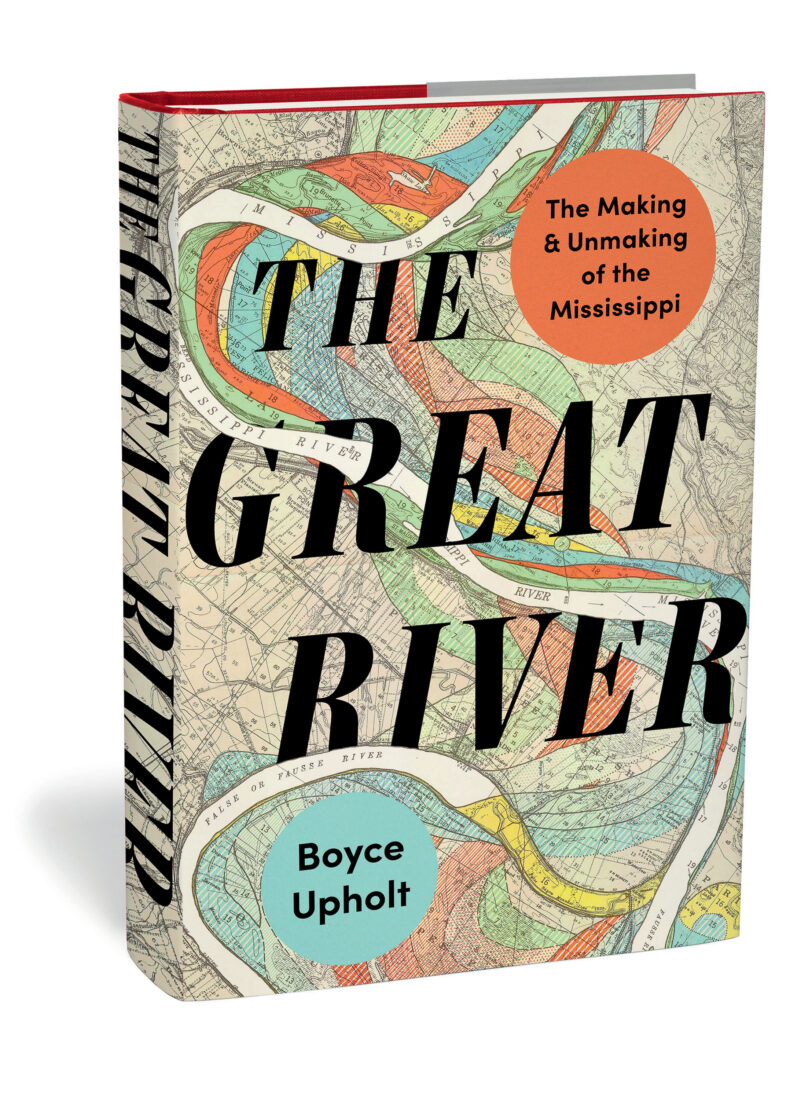
I f a beach read is doing its job, the details should stick like wet sand. Or in the case of The Great River (W. W. Norton & Company), like Mississippi silt. In his new chronicle of the South’s iconic waterway, the New Orleans journalist Boyce Upholt slides fascinating lore alongside jolting conservation truths. Not far away, the Oxford, Mississippi, poet Aimee Nezhukumatathil delivers Bite by Bite (Ecco), a buffet of food odes both personal and universal, including the July joy of cold watermelon wedges, rinds tossed into a pickup bed. But no summer break is complete without an epic story to get lost in, and with Rednecks (St. Martin’s Press), the novelist Taylor Brown takes as inspiration the West Virginia Mine Wars of 1920 and 1921 and pours out a tale scorched by coal, sharpshooters, and moonshine. —CJ Lotz Diego
Garden & Gun has an affiliate partnership with bookshop.org and may receive a portion of sales when a reader clicks to buy a book.

